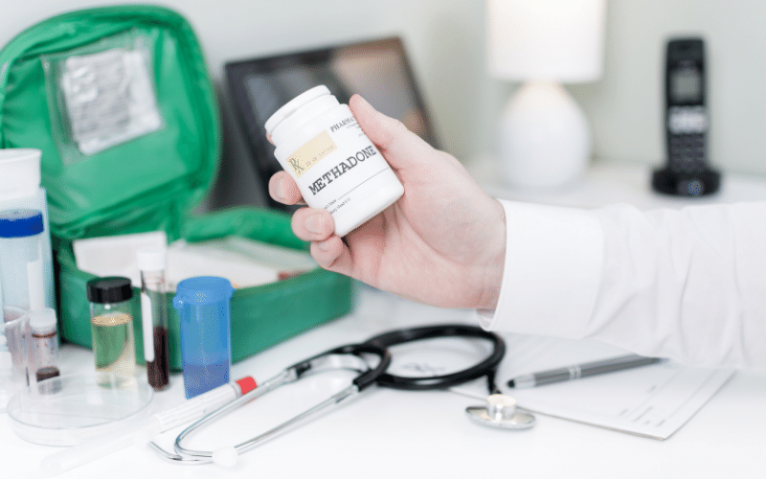What is Methadone?
Of all the drugs out there, street and prescription, none are as misunderstood as methadone. People, even those who have first-hand experience with this synthetic opioid, simply don’t understand what methadone is, how it works, how the dosage is determined or monitored, and the inherent dangers it brings with it.
It is important that the truth is known about this medication that has been used to treat opioid addiction for decades. What is that truth, you ask? Simple – methadone pills and liquid are dangerous and potentially deadly.
Methadone dosage varies widely and overdose isn’t uncommon. This is true even for those who’ve been on the drug for quite some time. Speaking of extended periods taking methadone, there’s a little something called methadone maintenance treatment to be addressed. Add into this already complicated equation the varying opinions on whether taking methadone is “allowed” in recovery. An addictive substance, it is no mystery why there’s such fierce misunderstanding.
So, with all the above in mind, let’s see if we can’t shed some light on what this opioid really is. First up, let’s look at methadone dosages.
Learn why methadone withdrawal is so much longer than other opioid withdrawal
Methadone Dosage
Methadone pills and liquids come in a ton of different strengths. These can range from five-milligram pills all the way to 100+ milligram syrups. It’s important to remember that someone’s methadone dosage is dependent on why they’re taking the medication in the first place and their body’s reaction.
Methadone is prescribed to some people for pain-related issues. Despite being thought of only as a form of medication-assisted therapy, methadone has a long history of use to reduce chronic pain.
In this case, an individual’s methadone dosage is usually much lower than if they were taking the drug as a form of addiction treatment. This is because they probably don’t have an opioid tolerance. Over time, doctors will adjust a patient’s methadone dosage depending on their level of pain and how well they tolerate the various side effects.
Methadone maintenance treatment is the use of prescription Methadone to treat addiction to heroin or other opioids. This is the most common use of the drug. I’ll explore this in-depth below, but first let’s look at dosage.
Someone’s methadone dosage is, broadly speaking, much higher if they’re on maintenance treatment. This makes sense, as they already have a tolerance to opioids in general. A patient’s methadone dosage while receiving maintenance therapy could be as high as 200 milligrams. However, methadone pill overdose is higher in people receiving the drug for maintenance than in those receiving it for chronic pain.
Perhaps this is due to the vastly different ways these populations consume methadone. One takes it to relieve pain, the other takes it so they won’t relapse into active addiction. There are a plethora of possible reasons that methadone overdose is higher in those receiving medication-assisted therapies.
What’s ORT and why do some people call it “fake sobriety?”
Methadone Maintenance Treatment
Better minds than ours have discussed the in’s and out’s of methadone maintenance treatment, but we do have a unique perspective to offer. What our team offers is a firsthand examination of what methadone maintenance treatment really looks like. That is to say, can you take methadone and be “truly” sober?
Opinions are all over the board on this question. Some say that taking methadone pills is completely acceptable in recovery. Others argue that taking opioids, methadone or otherwise, is a relapse. Some say that because many doctors offer methadone as a first-line treatment for heroin addiction, it’s okay to take and call yourself sober. Others disagree.
Unfortunately, there simply isn’t an easy answer. Rather, this is a decision that each individual much reach after consulting with their doctor(s), their sober supports (including their sponsor!), their spiritual or religious advisor, and their loved ones. It’s up to the individual to make an informed decision about whether methadone maintenance treatment is right for them.
Through our extensive personal experiences, we’ve seen both the good and the bad. While we don’t have an opinion on the effectiveness of methadone maintenance treatment, we do strongly encourage everyone to attempt abstinence-based treatment first. Additionally, there are alternative medical treatments such as Suboxone. Ask your doctor about these options before considering Methadone.









